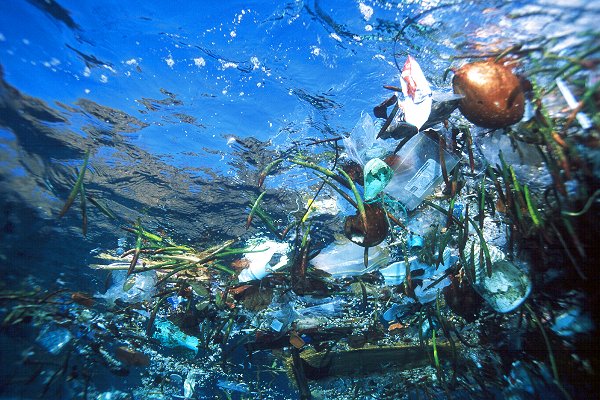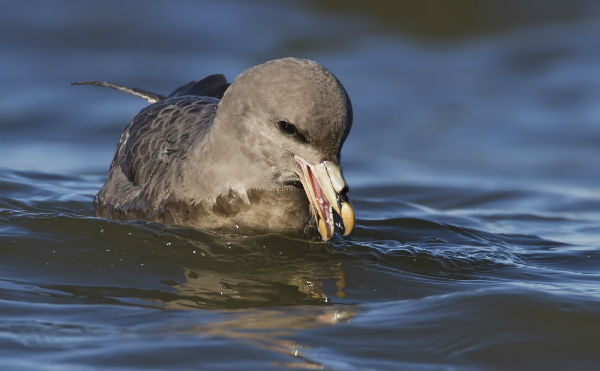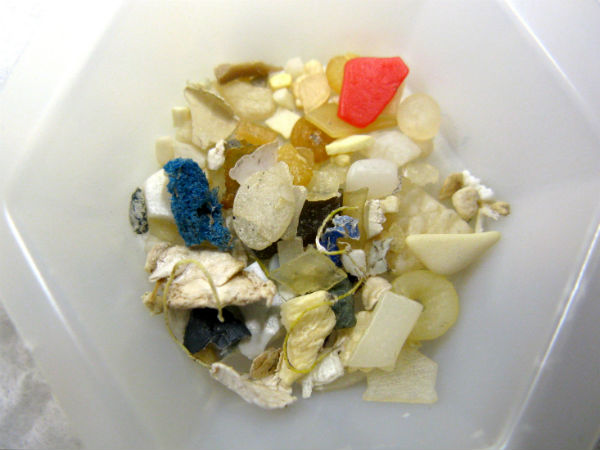Seabirds study shows plastic pollution reaching surprising levels off coast of Pacific Northwest

New study by a researcher at the University of British Columbia found that plastic pollution off the northwest coast of North America is reaching the level of the notoriously polluted North Sea. The study, published online in the journal Marine Pollution Bulletin, examined stomach contents of beached northern fulmars on the coasts of British Columbia, Canada, and the states of Washington and Oregon, U.S.A.
Northern fulmars are sentinels of plastic pollution in our oceans. Their stomach content provides a ‘snapshot’ sample of plastic pollution from a large area of the northern Pacific Ocean says Stephanie Avery-Gomm, the study’s lead author and a graduate student in UBC’s Department of Zoology. Northern fulmars forage exclusively at sea and retain ingested plastics for a long period of time, making them ideal indicators for marine littering. Analysis of beached fulmars has been used to monitor plastic pollution in the North Sea since the 1980s. The latest findings, when compared to previous similar studies, indicate a substantial increase in plastic pollution over the past four decades.

The research group performed necropsies on 67 beached northern fulmars and found that 92.5 per cent had plastics – such as twine, Styrofoam and candy wrappers – in their stomach. An average of 36.8 pieces per bird were found. The average total weight of plastic was 0.385 grams per bird. One bird was found with 454 pieces of plastic in its stomach. The average adult northern fulmar weighs 2.25 kilograms (five pounds). While 0.385 grams in a bird may seem inconsequential to us, it’s the equivalent of about five per cent of their body mass. It would be like a human carrying 50 grams of plastic in our stomach.

Despite the close proximity of the ‘Great Pacific Garbage Patch,’ an area of concentrated plastic pollution in the middle of the North Pacific gyre, plastic pollution has not been considered an issue of concern off North American coast. But study have found similar amounts and incident rates of plastic in beached northern fulmars here as those in the North Sea. This indicates it is an issue which warrants further study. The researchers propose annual monitoring of trends in plastic pollution and the effectiveness of marine waste reduction strategies.
Beached bird surveys are providing important clues about causes and patterns of sea bird mortality from oil spill impacts, fisheries by-catch and now plastic ingestion says co-author Karen Barry with Bird Studies Canada, a not-for profit organization that helped facilitate the study.
Plastic in the sea is a result of human callousness. Presently, even though we are striving hard to clean-up and restore the beauty of the marine eco-system, it would have been in everyone’s better interests to have not polluted the ocean and caused this problem in the first place.
Source: Marine Pollution Bulletin, University of British Columbia
Featured image credit: Inertia

Commenting rules and guidelines
We value the thoughts and opinions of our readers and welcome healthy discussions on our website. In order to maintain a respectful and positive community, we ask that all commenters follow these rules.